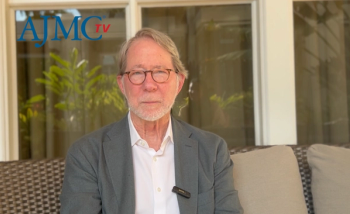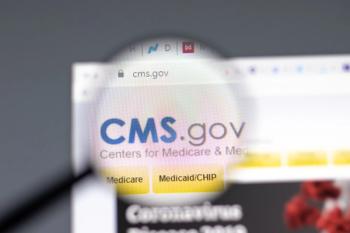
AJMC Study Finds CMS Fee Schedule Doesn't Pay Doctors Enough to Care for Complex Patients
The call for value-based care is propelled by the shortage of family physicians and the disparity connection between the time it takes to care for the sickest patients and what Medicare and Medicaid pay. A study in this month's issue of The American Journal of Managed Care tracks just how bad things are, by looking at a normal day in a family practice.
AJMC Study Finds CMS Fee Schedule Doesn’t Pay Doctors Enough to Care for Complex Patients
FOR IMMEDIATE RELEASENovember 27, 2014
PLAINSBORO, N.J. — To understand what’s wrong with medicine, consider the result of a study in the current issue of The American Journal of Managed Care: Authors Richard Young, MD, and Tiffany L. Overton, MPH, tracked 15 family physicians through their paces at their clinics, noting what they did, the labs, images and prescriptions they ordered; and codes they submitted based on the Current Procedural Terminology.
What did the authors find? The average time per patient was 20 minutes. Meanwhile, the average fee collected was $101.40, including patient co-pays, which is an uneven match, according to the authors.
In other words, being a family doctor doesn’t pay, which is why so few young practitioners with student loans to pay are entering the field. The full results of the study are
The United States needs more primary care physicians than ever before. This is why healthcare reform calls for upending the reimbursement apple cart, and making it worthwhile to spend time with patients, especially those whose chronic conditions call for extra attention.
As the authors write, “Longer consultations in primary care have been found to improve processes of care and have been associated with greater patient satisfaction and reduced healthcare utilization. Shorter family medicine visits have been found to result in less thorough histories, and they have been associated with lower rates of preventive services, lower patient satisfaction, and a lower rating for the doctor-patient relationship.
“As a result, commentators have called for longer primary care visits, especially for high-risk patients with multiple comorbidities, which is economically unviable for primary care providers in the current payment system.”
There has been some recent movement by CMS, which earlier this month announced a new $40 billing code for Medicare patients with chronic conditions. While physician groups praised it as a good start, many said the amount likely doesn’t reflect the cost of providing such services.
About the Journal
The American Journal of Managed Care, now in its 20th year of publication, is the leading peer-reviewed journal dedicated to issues in managed care. Other titles are The American Journal of Pharmacy Benefits, which provides pharmacy and formulary decision makers with information to improve the efficiency and health outcomes in managing pharmaceutical care. In December 2013, AJMC introduced The American Journal of Accountable Care, which publishes research and commentary devoted to understanding changes to the healthcare system due to the 2010 Affordable Care Act. AJMC’s news publications, the Evidence-Based series, bring together stakeholder views from payers, providers, policymakers and pharmaceutical leaders in oncology and diabetes management. To order reprints of articles appearing in AJMC publications, please call (609) 716-7777, x 131.
CONTACT: Mary Caffrey (609) 716-7777 x 144
Newsletter
Stay ahead of policy, cost, and value—subscribe to AJMC for expert insights at the intersection of clinical care and health economics.









